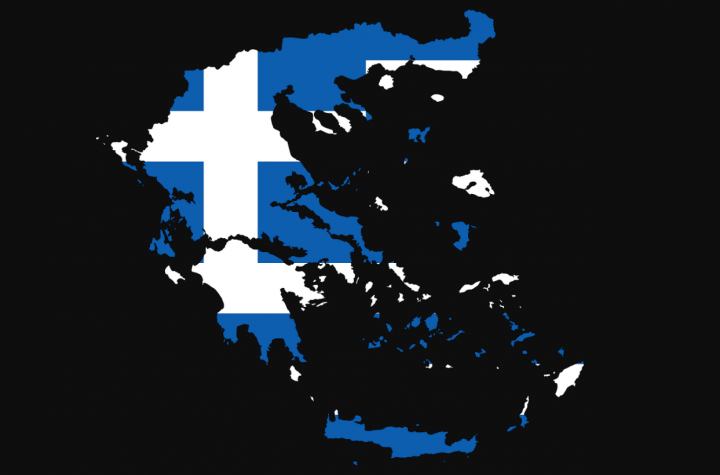Athens News published a supposedly confidential IIF report on the cost of a Greek default. Here is my analysis.
There are some very important and damaging ramifications that would result from a disorderly default on Greek government debt. Most directly, it would impose significant further damage on an already beleaguered Greek economy, raising serious social costs. The most obvious immediate spillover it that it would put a major question mark against the quality of a sizeable amount of Greek private sector liabilities.
Straight away the authors are struggling to sound competent while at the same time portraying a Greek default as somehow a bad thing for Greeks. Apparently the most obvious downside to a Greek default is the uncertainty over the debts of private sector businesses. I read bank when they say “private sector”. I think it is a given that the main banks in Greece would cease operations if the Greek government were to default.
As I have mentioned before. This would cause short-term problems, but nothing that cannot be overcome.
The article then goes onto talk about the huge mess that the ECB has got itself into. That is all well and good but what is the point here? That the Greek taxpayers should bear the costs of mistakes of foreign bankers?
The report then goes on to give an ultimatum to whichever politician is in power in Greece.
A disorderly default will begin with the failure of the Greek authorities, the Troika and Greece’s private sector creditors to agree on a package of measures that would permit the disbursement of new official funds, and the debt exchange of existing private sector claims on Greece for new debt at a deep discount. It would most likely have the following characteristics
“Do what we say or else” is what that sounds like to me….
The report then outlines the actions that will be taken if the austerity measures are not pushed through
The highlight being this
As mentioned before, it is hard for me to imagine the Eurozone not reimburse Greek bank depositors but reimbursing bankers so Greek savers should not be out-of-pocket if the banks collapse.
About Greek private citizens going bankrupt. Lets not pretend this is down to a Greek government default. The public sector workers who have seen their wages slashed will be in difficulties, default or no default. The cure to this is to enable the public sector workers to find work in the private sector, unfortunately the Greek government has destroyed this option.
The report then starts to get desperate
The practical difficulties, costs (both for the government and the private businesses in terms of switching to a new payments system) and implications of such a rushed decision would be substantial. Practical difficulties in day-to-day transactions would be serious as there would be no easy way to separate the Euro notes circulating in Greece from those circulating in other Euro Area countries, with a potential for further capital flight. There would also be major difficulties/challenges in sorting out the appropriate re-denomination and valuation of existing financial assets and liabilities in current private and public sector balance sheets, in different jurisdictions.
The title of the article is Implications of a Disorderly Greek Default and Euro Exit – a false analogy, which sets the tone by bringing the separate Euro and false question into the equation.
But getting past that, the article tries to make it sound impossible for a country to change currency, even though Greece has already changed currency recently. Answers on a postcard why the article is making this process sound so difficult.
The article then continues by highlighting hypothetical issues that would affect other countries in Europe before finishing off with a little finale.
Catastrophic bankruptcy, however, would put at grave risk much of what has been achieved by Greece since 2009. Social strains would intensify as the economy reeled and unemployment surged from an elevated level already in excess of 20 percent. Living standards would collapse with economic activity and the further diminution of the Greek state’s ability to provide basic social services and support. Against this backdrop, it would become more difficult — not less –to build the political consensus needed to free the economy, the government and the society from vested interests that deeper crisis would more firmly entrench. Whatever its economic benefits, a sharply depreciated “new” drachma under these circumstances would assure that the costs of adjustment, now greatly increased, would be distributed even more unevenly than at present.
The reports regurgitates accepted mainstream media knowledge, unfortunately the accepted knowledge is complete garbage.
The whole paragraph is written with the implication that the EU is willing to use taxpayer money to bail out bankers but is unwilling to use taxpayer money to bail out bank depositors/taxpayers who are the victims of bank mistakes. As I said, I do not think it is a likely scenario.
So I am struggling to understand how a Greek default would lead to increased unemployment in the long-term and increase social strains. Both these things are possible if the Greek government did nothing to adapt to the post default environment but would Greek politicians be so cruel?
Apparently living standards would collapse. Why exactly is not clear.
It then goes onto say a “sharply depreciated new Drachma”. Why the Greek central bank would actively devalue the labour and property of Greeks by recklessly printing money in unclear.
And assuming the Greek central bank did decide to print excess Drachma why exactly would this increase the cost of adjustment as the article states, is not clear.
Sure the report makes sense if politicians in Greece and Europe were to deliberately sabotage a Greek recovery post default but wouldn’t the politicians in Greece want to help the country post default rather than continuing the actions that led the country to default in the first place?
Another similar perspective? http://www.athensnews.gr/issue/13485/53726
And a perspective than you can here in the media http://www.athensnews.gr/issue/13485/53724




It is easier to join a large currency than to leave. On joining there is two currencies but at the time of leaving there is only one and so it is hard to establish an exchange rate.
Hi, thank you for your comment.
I believe the exchange rate issue is a complete fiction. it does not matter if there is 1 drachma to the euro or 1000. It is just a number.
What matters is how the currency is managed after the change. If the Greek central bank wants to print excessive Drachma then it will devalue. If they do not, it will not. The issue Greece has is its huge trade deficit (almost 10% of GDP) which, if not addressed, will mean there will be 10% less Drachma in circulation every year, at best. This shrinking of the quantity of Drachma circulation would cause huge problems, (if the declining amount of currency was not made up by an increasing of the efficiency of the economy).
Following it to its logical solution, there will come a day when Greece has no Drachma left, only products.
This is the Greek central banks justification for inflation. ie if they did not inflate the currency there would be no money left. The real issue is the trade deficit.
About Greece being a small country and how nobody would want the new Drachma. Again utter nonsense from the media. if the Dracham was tied to the value of gold for example, does the mainstream media really believe that nobody would want it? Drachma would simply be gold in an easy to trade form.
My opinions. I stand to be corrected…
“Following it to its logical solution, there will come a day when Greece has no Drachma left, only products.”
Yes exactly , then the population can turn to something else as currency.